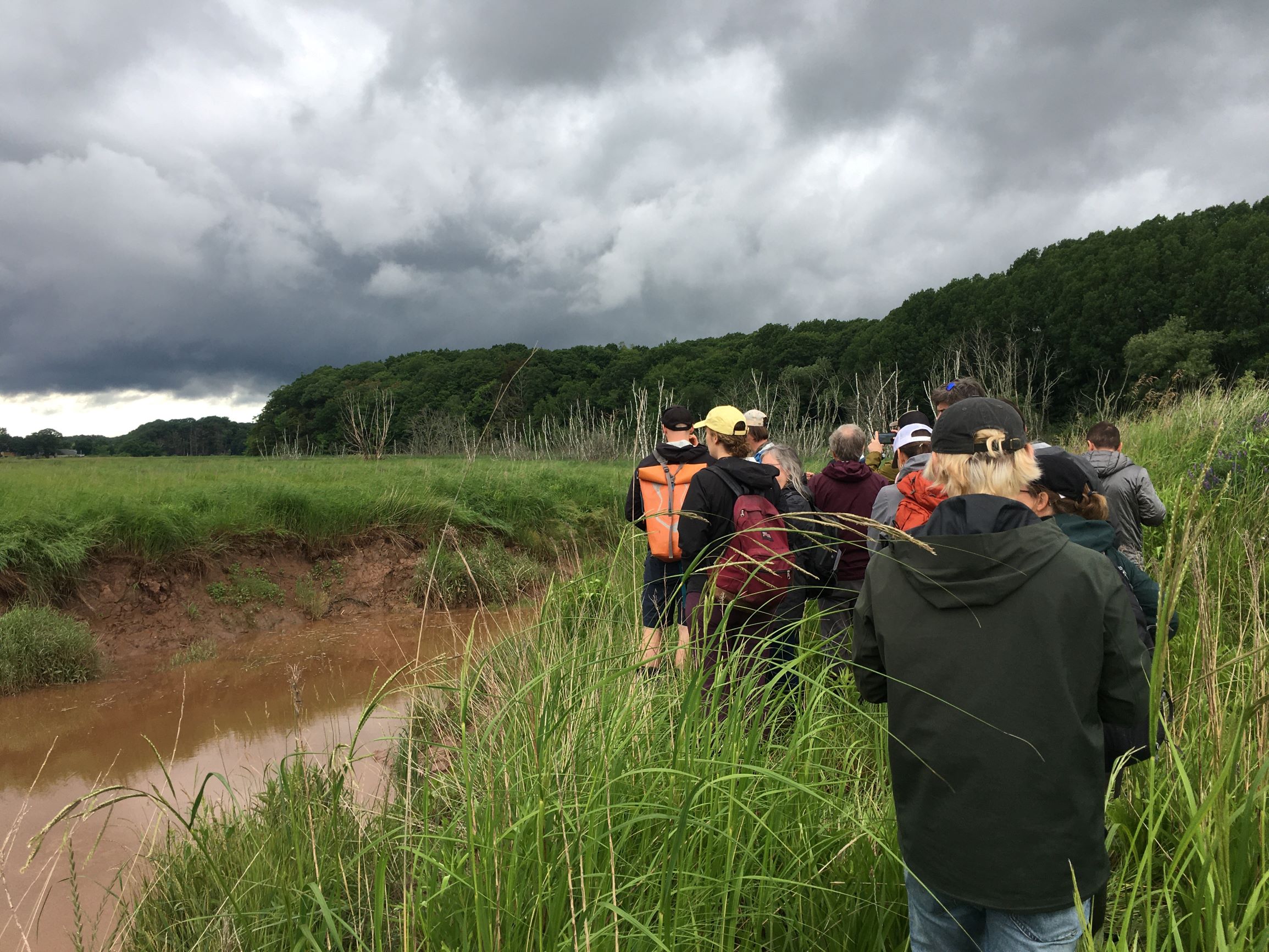
Coastal habitats, like marshes, reefs, and islands, also known as natural infrastructure or nature-based solutions, have an inherent ability to reduce waves and erosion, thereby reducing risks to coastal communities and neighboring shorelines. Natural habitats also have the ability to adapt to changing environmental conditions like sea level rise. Despite these advantages, the uncertainties associated with the performance and maintenance of natural infrastructure are obstacles to their wide-spread acceptance and use. The application of natural infrastructure in cold regions, in particular, is challenging due to harsher winters, reduced field and construction windows, the lack of baseline data and complicated logistics. The coastlines of Canada, Alaska, the Great Lakes and parts of the U.S. northeast and Pacific northwest coasts are situated in cold regions.
To overcome these challenges requires multidisciplinary collaborations that leverage expertise and resources throughout the various project stages, including planning, design, construction, monitoring and adaptive management. In support of this effort, NOAA NCCOS partnered with the US Army Corps of Engineers (USACE) Engineering With Nature ProgramⓇ (EWNⓇ), Cold Regions Research and Development Work Unit to participate in the June 26 – 30, 2022 Canada Nature-Based Solutions for Cold Regions Workshop. The five-day event featured field visits, a two-day symposium for development of Canada-specific natural infrastructure guidelines and a workshop “to engage critical discourse around the feasibility of nature-based adaptation to climate change by defining successful cases, developing frameworks, and mobilizing collective lessons learned.”
Throughout the week participants were exposed to a range of restoration techniques and monitoring, numerical, and physical modeling research, as well as social and policy obstacles. Case studies included sediment placement to restore marsh flats in the Fraser River Delta, Metro Vancouver British Columbia (BC), dune restoration on the Acadian Peninsula, New Brunswick, a hybrid solution in Metlakatla BC, involving cobble beach installation, and dyke realignment in the Bay of Fundy, Nova Scotia. Artificial reef balls and woody debris were used to promote sediment accretion and stabilization along with techniques to restore erosional bluffs.
NCCOS and EWN projects and partnerships were presented as three case studies in different stages of implementation and research: Point Hope Alaska, Saint Croix Island Maine, and Swan Island Maryland. The Swan Island project has culminated in lessons learned from three-years of post-restoration monitoring and adaptive management. This information is critical to informing adaptive management actions for the island as well as the design and construction of other beneficial use, sediment placement projects in the Chesapeake Bay region and beyond.
The workshop was hosted by TransCoastal Adaptations Centre for Nature-Based Solutions at Saint Mary’s University, in collaboration with the Coastal Zone Canada Association (CZCA), CZCA Cold Regions Living Shorelines Community of Practice, and the National Research Council Canada in Halifax, Nova Scotia. This research is part of NCCOS’ efforts to conduct science that supports coastal resilience through investigations on the performance of nature-based solutions in real-world conditions.
